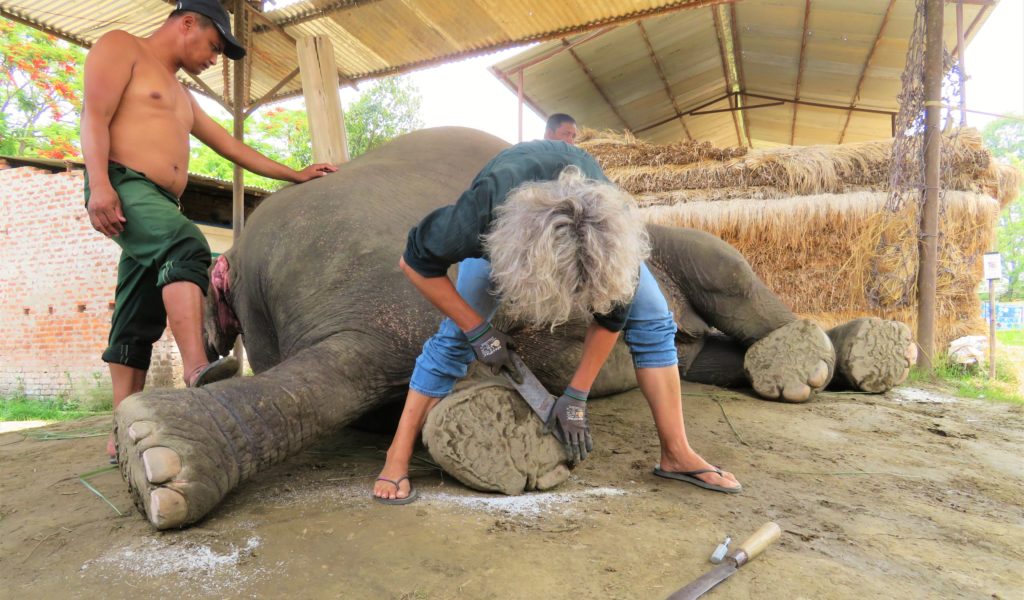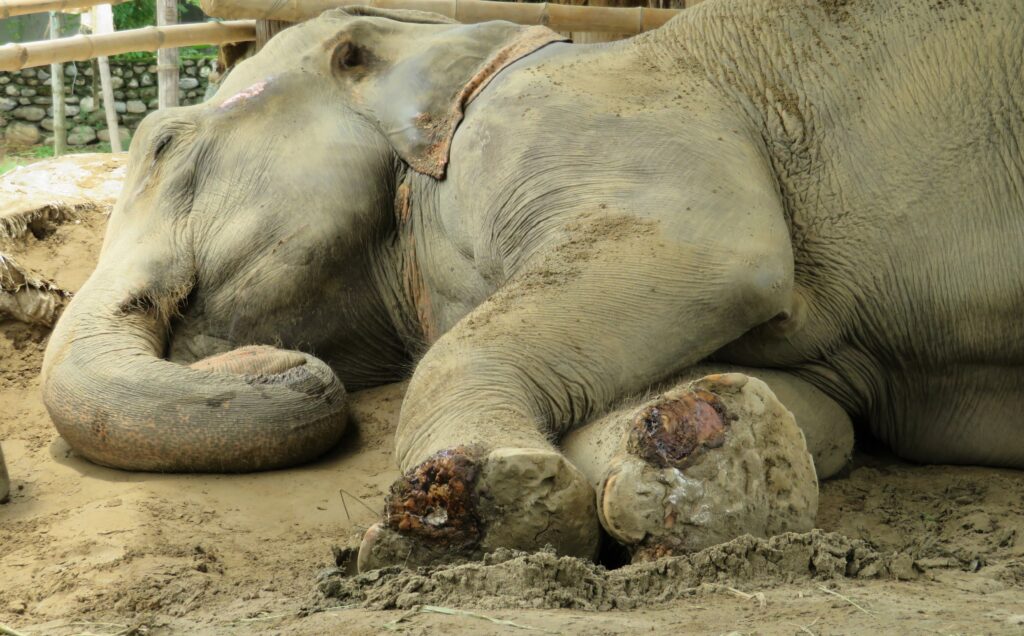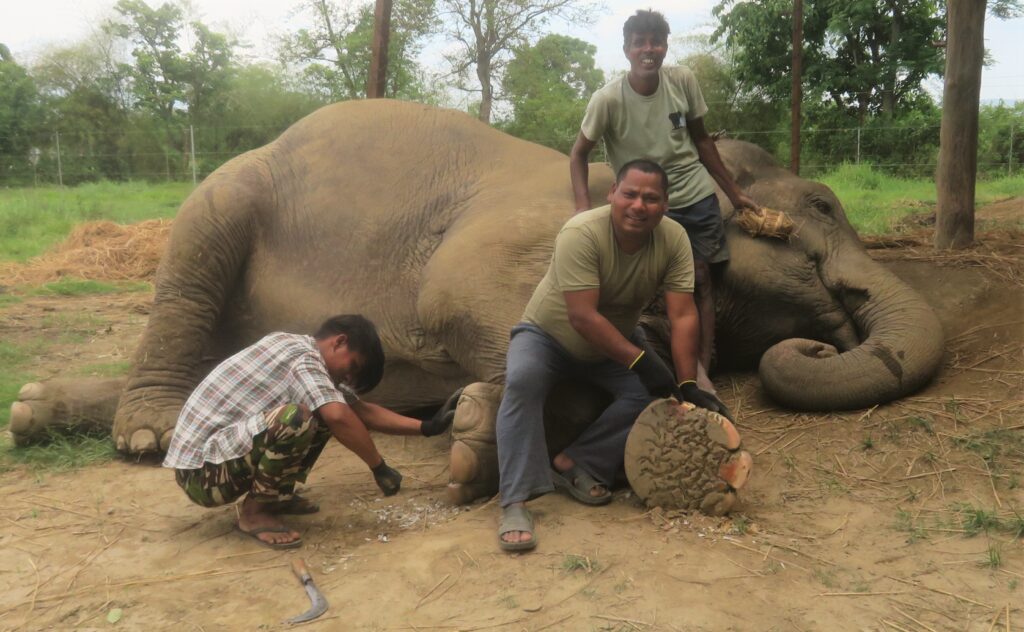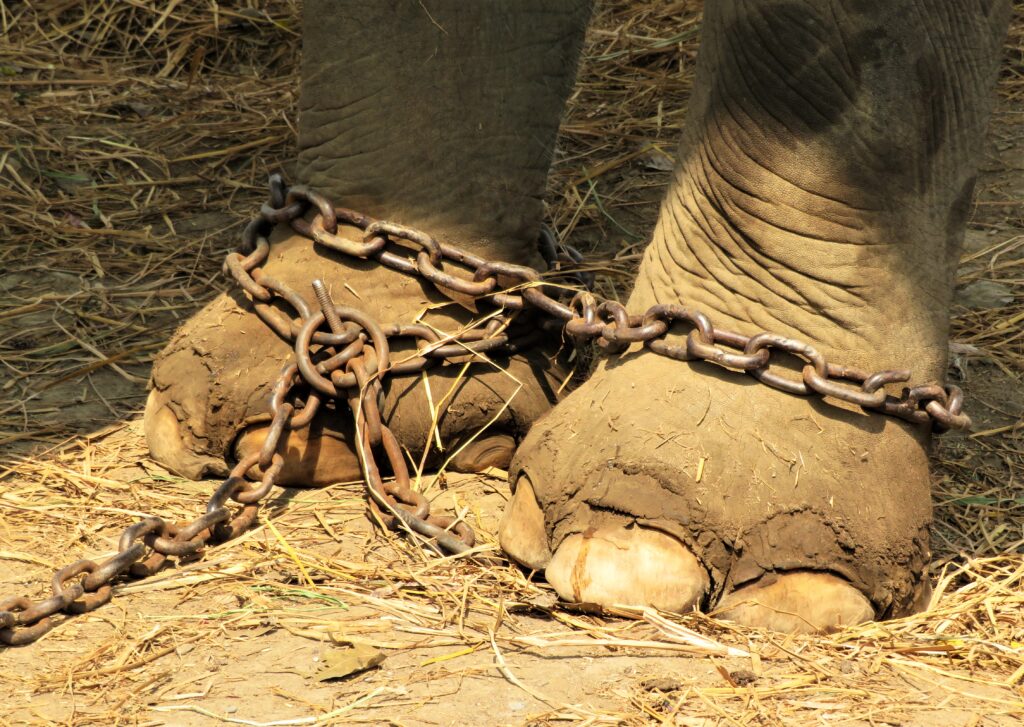Captive elephants need regular foot trimming to prevent infections.
We provide this service when needed.
Our founder Lena Quénard is a specialist in elephant foot care. She has been trained since 2014, in Nepal, with Carol Buckley and Nepali veterinarian technician Kiran Rijal.
The art of foot trimming is a continuous learning process, as no two elephant’s feet are the same. The environment, the surface on which the elephant is kept, the age and the health of the elephant are all factors to take into account. Filing and trimming is done carefully, nail after nail and on the pad, working towards a well-balanced foot, while taking into account the entire elephant.
2017-2023. Lena cares regularly for Lucky Kali’s feet. They have been recognized as the best maintained and healthiest feet in the entire district of Chitwan by the local veterinarian Bablu Thakur.
Most captive working elephants in Nepal live with serious foot problems. Long hours spent chained, standing in their own feces, poor and inadequate food, walking on unsuitable surfaces such as concrete and asphalt – cause the nails to crack, the pads of the feet to become thin and bruised, wearing unevenly. This leads to infection and osteomyelitis, causing years of pain and suffering. Osteomyelitis causes the disintegration of toe bones, followed by the physical collapse of the elephant and their subsequent death.
Photo below: Apou Kali was a working elephant in Sauraha, Nepal. The lack of appropriate care and knowledge of her owner leaded her to collapsed and die from osteomyelitis. Summer 2017.
We teach the mahouts how to care for their elephants’ feet.
This is an example of a working elephant in Nepal. She is in tremendous pain with an infected foot and a swollen leg.
We can see one of her nails is gone. Her mahout forces her to walk for exercise as he thinks this is in her best interest.
Her condition is the sad result of a life of working with poor husbandry and no animal welfare laws enforced.
Elephants living a life free of chains are in better mental and physical health. The elephant’s feet are in better condition, stereotypic behavior – a sign of great stress and discomfort – is often eliminated.
In Nepal, working elephants are chained 24/7 unless taken for a ride.





